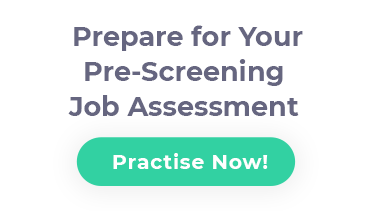Credit Suisse Aptitude Tests (Numerical & Verbal Reasoning), Assessment Centre & Interview Online Preparation – 2025

What Is Credit Suisse?
Credit Suisse is a wealth management company headquartered in Zurich, Switzerland. The company specialises in investment banking, private banking, and asset management. Founded in Switzerland in 1856, Credit Suisse has since grown to have locations in roughly 50 countries, including the United States, United Kingdom, Canada, Australia, India, China, and South Africa.
What Qualities Are Credit Suisse Recruiters Looking For?
Credit Suisse places great value on integrity, innovation, and sustainability. As such, their recruiters will be looking for qualities in prospective hires that reflect those values. Successful applicants will demonstrate:
- Self-motivation
- Leadership
- Problem-solving skills
- Excellent interpersonal skills
- Integrity
- Good communication skills
- Collaborative mindset
- Creativity
What Benefits Are Provided by Credit Suisse?
With its multinational presence, Credit Suisse’s employee benefits will vary by location. However, successful candidates can expect benefits such as:
- Medical insurance
- Retirement plans
- Maternity/paternity leave
- Wellness programs
- Childcare services
- Discounts on products and services
What Is the Hiring Process for Credit Suisse?
Credit Suisse has several avenues for entry into their workforce. These include direct application, graduate programs, apprenticeships, and return to work programs. It should be noted that all apprenticeships and some graduate program paths are only offered in Switzerland, but Credit Suisse does offer international graduate programs, and their return to work program is global.
Whichever of these routes an applicant chooses, the application process is largely identical. It is a fairly straightforward hiring process, which makes for a relatively short recruitment window. However, applicants should expect that each stage of the recruitment process will be thorough and should take time to prepare for each step.
-
- Online Application
The first step to becoming a Credit Suisse employee is to fill out their online application. As part of the online application, job seekers will need to choose the location, along with the position, for which they are applying. Then they will need to provide their education and employment histories. Additionally, applicants should upload a copy of their CV and a cover letter. Try to keep the CV brief, to the point, and positive. The cover letter should be only about one page long and should explain why the applicant would like to work for Credit Suisse and why they would like to fill this specific role.
- Web-Based Assessments
After submitting the online application, candidates will be invited to complete an online assessment. The online assessment is comprised of two psychometric assessments: a verbal reasoning test and a numerical reasoning test. Unlike many other companies, Credit Suisse does not require prospective employees to take a situational judgment assessment as part of their application. This aspect of the hiring process is typically addressed during the interviews.
- Phone Screening
Applicants whose CVs are shortlisted after the assessment stage will be invited to schedule a phone interview. This interview is a competency-based screening, designed to ensure that candidates greenlit for the next phase in the hiring process will be behaviorally and philosophically compatible with Credit Suisse. As such, job seekers can expect questions regarding their approach to work, difficult customers, and challenging situations. Remember to include specific examples when giving your answer.
This stage is also where applicants can expect to explain why they want to work at Credit Suisse, and where recruiters will review and delve a little deeper into an applicant’s CV. As a result, it is important to have reviewed your CV before or to have your CV in front of you throughout the screening.
- Assessment Center: In-Person Interview
Depending on which department to which prospective hires have applied, the in-person interview may be the last phase of the hiring process before onboarding begins. The interview given at the Credit Suisse Assessment Center is actually two separate interviews over the course of one hour. Typically, these interviews will be conducted by managers within the department to which a candidate has applied. At this stage, applicants will encounter questions regarding the knowledge and skills they will need in order to perform their role at the company.This is also the stage in which recruiters may ask probing questions about an applicant’s CV. For example, they may ask about a specific skill listed on the CV and request the applicant to explain how they developed that skill through experience. They will also be asking questions regarding the candidate’s understanding of specific terminology and practices within the responsibilities of the position for which they have applied.
- Group Exercise
Prospective employees of select departments of Credit Suisse will be required to participate in a group exercise as part of their final interview. The group exercise is an opportunity for candidates to demonstrate their ability to collaborate, analyse information, and communicate their thoughts clearly. In this final phase, candidates will be split into small groups (about 3-4 people) and given materials relating to a hypothetical situation. Each group must work together to analyse the data provided, develop a solution, then share their findings in a 10-minute presentation. Keep in mind that this exercise is intended to highlight candidates’ communication and collaboration skills, so it is in your best interest to speak up and share your ideas- just be sure not to ignore the ideas of your teammates.
- Pre-Employment Checks
Once a candidate has successfully passed through all stages of the hiring process, Credit Suisse will perform a background check and a credit check. Successful applicants will also be required to take a drug test before they are officially offered employment with Credit Suisse. Provided their background and credit checks are satisfactory and they pass the drug test, prospective hires will begin the onboarding process to make their employment with Credit Suisse official.
Internship Application Process
You do not have to major in Finance to apply for an internship with Credit Suisse. They welcome students of all backgrounds, provided you show the drive to succeed. The application process is simple. Just as in the recruiting process for traditional hires. You will need to submit your application online. You will need to attach your CV, but for some roles a cover letter is optional. Applications for each role have different requirements, so it is recommended you attend Credit Suisse events, and carefully read about the different areas they offer internships in to make certain the program you apply for is the right fit.
Credit Suisse Assessments
Verbal Reasoning Assessment
Credit Suisse requires applicants to complete a verbal reasoning test in order to determine each applicant’s aptitude for comprehending complex texts and drawing logical conclusions from the evidence they present. Consequently, the verbal reasoning assessment presents test-takers with several short passages, each of which is followed by a concluding statement. For each conclusion statement, you will be required to determine whether the statement is true, false, or if its validity cannot be determined based on the information in the text.
It is important to keep in mind when taking this test that your answer must be based solely on the information given in the passage provided. Additionally, you will have only 20 minutes to answer 20 questions. Time management is key to performing well on this test.
Numerical Reasoning Assessment
Credit Suisse is a wealth management company, so performing well on the numerical reasoning test is vital. This is an aptitude test designed to assess an applicant’s ability to understand and interpret visual representations of data. Each of the 20 questions will present the test-taker with a statistical chart, graph, or table and require them to draw a conclusion based on this information. You may need to perform basic mathematical operations, such as addition or division, or to calculate ratios or percentages.
Just as with the verbal reasoning test, you will only have 20 minutes to answer the 20 numerical reasoning questions. It is paramount that you manage your time well as you work through each exercise.
What Questions Might Be Asked During the Interview?
Although the specific questions applicants are asked will vary according to the department and position to which they have applied, they can expect questions similar to the following:
- Why do you want to work for an investment bank?
- What was a mistake you caught that no one else did?
- To the best of your ability, can you explain what high yield debt is?
- What is the angle created by the two hands of a clock at 3:15 pm?
- Describe a time when you were a leader, and there was a dispute amongst your team. How did you handle this situation?
- How many zeros are in 100! (100 factorial)?
- What is a financial story you have been following, and what are your views on the situation?
- What is the difference between Java and C++?
- Give examples of various Agile management methodologies.
- How is a normalised database better than a denormalised one?
- You have a set of scales and nine bowls. One bowl is gold, while the rest are bronze and have a different weight. If you can only use the scales twice, how do you go about determining which is the gold bowl?
How Should You Prepare for Credit Suisse’s Assessments?
Whether you are fresh out of university or have been in the financial industry for years, practice is the best preparation for Credit Suisse’s verbal reasoning and numerical reasoning assessments. Completing verbal reasoning and numerical reasoning practice tests will allow you to become more familiar with the type of questions you will see on the actual test. In the case of the verbal reasoning assessment, it will also introduce you to the style of reading passages you will be expected to analyse on the test. The practice numerical reasoning assessment will give you the opportunity to brush up on the computational skills you will need to use on the actual exam.
Credit Suisse Interview Tips
Preparing for the interview phases of the Credit Suisse recruitment process is equally important as preparing for the assessment phase. One way to prepare for both the phone interview and in-person interviews is to consider the possible interview questions listed above and brainstorm your answer to each question. It is important to remember to include specific examples in answers regarding your skills and past experience. You may also find it helpful to practice giving these answers to a friend or family member.
If you are invited to participate in the group exercise, the best preparation will be to find example case studies and practice analysing and brainstorming solutions for these scenarios. You will also find it beneficial to practice presenting your findings. Practising both of these skills will help you to feel more confident when you take part in the group exercise at the Credit Suisse Assessment Center and allow you to truly stand out from the crowd.

